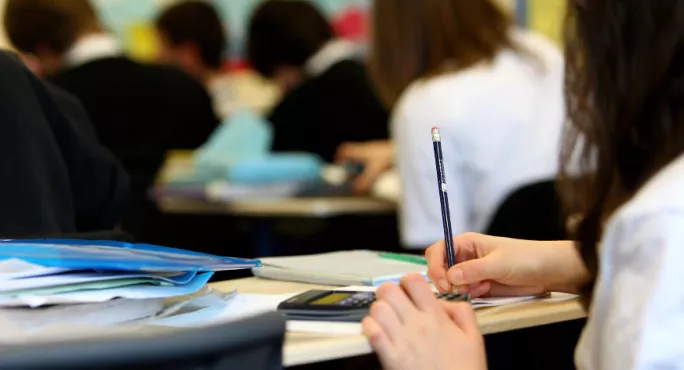GCSE results undergo a “sudden jump” in schools in the year before they become sponsored academies, research has shown.
But the boost in grades is generally short-lived as the schools’ improved performance lasts no longer than three years, when results are compared with a control group of academies.
The study, released by the Education Policy Institute, has been published to coincide with today’s evidence session for the Commons education select committee’s inquiry into multi-academy trusts.
An analysis of the performance of sponsored academies established after 2010 reveals a marked increase in GCSE results among schools in the year immediately before they are sponsored. But the study shows that the improvement “tapers” back to zero in the fourth year after becoming an academy.
Researchers at the London School of Economics said the “sudden improvement” could be due to the “incentives generated by the academisation policy”.
“This could be driven by school leaders wanting to avoid becoming an academy by demonstrating improved results or perhaps wanting to become attractive to a successful chain,” the research states.
“Another explanation is that some of these schools, after years of poor performance, have taken action to raise standards under pressure from Ofsted and other bodies. This could include the appointment of a new headteacher or new teaching policies, for example.”
Improvement ‘tapers off’
The research shows that schools earmarked for sponsorship from 2010 onwards saw an improvement equivalent to 1.2 GCSE grades in one subject in the year before converting.
According to the analysis, the academies’ exam results improve again in the year just after sponsorship, going up 1.7 GCSE grades or higher in one subject.
After the fourth year, however, the results “taper” back to zero, with the schools faring no better than a control group of sponsored academies that opened after 2014.
Researchers said it was unclear why the improvement, compared against other academies, was not sustained.
“It is difficult to discern how much of this ‘fall’ is due to a real decline in improvement or how much of it is a result of the control group improving its own results in the year before it becomes an academy,” the study says.
A Department for Education spokesperson said: “Our reforms, which have academies at their heart, are raising standards for children across the country, with over 1.4 million more pupils in good or outstanding schools than in 2010.
“Converter academies continue to perform above the average for state-funded schools, while sponsored academies are typically schools that were previously poorly performing, but have been improving on average.”
Want to keep up with the latest education news and opinion? Follow TES on Twitter and like TES on Facebook




